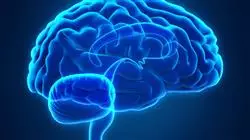University certificate
The world's largest faculty of pharmacy”
Why study at TECH?
With programs like this one, pharmacists will acquire the knowledge they need in Central Nervous System Infections”

Central Nervous System Infections are an emerging health problem, as it is necessary to make quick and accurate diagnoses in order to avoid complications. In fact, as sometimes there are no specific symptoms, urgent care is frequent in diseases of this type, which have not been diagnosed early.
Although the introduction of antibiotic drugs has significantly reduced the morbidity figures for this disease, it is still necessary to continue with pharmaceutical scientific research, as well as for specialists to be aware of all the new developments that may arise in this regard.
Therefore, pharmacy professionals, regardless of where they work, can see in this Postgraduate Certificate the opportunity to take a teaching program that brings together the most advanced and in-depth knowledge of the most important health problems in the field of infectious diseases and antimicrobial treatment, where a group of professors of high scientific rigor and extensive international experience, offers the most complete and updated information on prevention, diagnosis, treatment and care of individual patients and population groups, afflicted with the most prevalent and deadly infectious diseases.
In this case, the program focuses on Central Nervous System Infections, which affect thousands of people worldwide, with special emphasis on meningitis, encephalitis and myelitis.
If you want to make the best investment in your training, do not hesitate to take this Postgraduate certificate in Central Nervous System Infections at TECH”
This Postgraduate certificate in Central Nervous System Infections endorses the latest advances in clinical infectious diseases with a teaching program that positions it as an educational product of the highest scientific rigor at international level. Additionally, this program provides training and professional development in different areas:
- Clinical symptoms development medicine to be able to address the infectious health-disease process in a particular person through the study of the most prevalent and deadly infectious diseases, and, in epidemiology, to study the behaviour of the same phenomenon in a population
- The indication, performance and interpretation of the main state-of-the-art diagnostic tests to complement clinical skills in the diagnostic process. Emphasizing the most up-to-date microbiological tests used to rapidly diagnose germs and study antimicrobial
- The complex and determining pathophysiological relationships between the immune response and infectious agents
- Germs related to neoplasms and chronic non-communicable diseases
- Development and production of vaccines for the control of morbidity and mortality due to infectious diseases
- The important field of antimicrobial therapeutics, providing the best available information on the development and production of new antibiotics
Increase your decision-making confidence by recycling your knowledge through this Postgraduate certificate, created especially for pharmacists”
Its teaching staff is made up of prestigious and renowned professionals with a long career in health care, teaching and research, who have worked in many countries on several continents, developing professional and teaching experience that they deliver in an extraordinary way in this Postgraduate Certificate.
The methodological design of this Postgraduate certificate, developed by a multidisciplinary team of e-learning experts, integrates the latest advances in educational technology for the creation of numerous educational multimedia tools that allow the professional, based primarily around the Problem-Based Learning method, to address real problems in their daily clinical practice, which will allow them to advance by acquiring knowledge and developing skills that will impact their future professional work.
It should be noted in this Postgraduate certificate that each of the contents generated, as well as the videos, self-evaluations, clinical cases and exams, have been thoroughly reviewed, updated, and integrated by the teachers and the team of experts that make up the working group, to facilitate the learning process with a step-by-step approach in order to achieve the teaching program objectives.
This Postgraduate certificate is endorsed by TECH Global University"

Balance your studies with your professional and personal life thanks to the possibility of taking this Postgraduate certificate 100% online"
Syllabus

Focus your studies on Central Nervous System Infections thanks to this Postgraduate certificate, the highest quality on the market"
Module 1. Epidemiology and Microbiology of Infectious Diseases
1.1. Epidemiological, Economic, Social and Political Conditions in Continents Which Favor the Development of Infectious Diseases
1.1.1. Africa:
1.1.2. America
1.1.3. Europe and Asia
1.2. New and Emerging Diseases By Continent
1.2.1. Morbidity and Mortality From Infectious Diseases in Africa
1.2.2. Morbidity and Mortality From Infectious Diseases in the Americas
1.2.3. Infectious Disease Morbidity and Mortality in Asia
1.2.4. Morbidity and Mortality From Infectious Diseases in Europe
1.3. The Taxonomy Of Infectious Agents
1.3.1. Viruses
1.3.2. Bacteria
1.3.3. Fungus
1.3.4. Parasites
1.4. Disease-producing Properties of Micro-organisms
1.4.1. Mechanisms of Pathogenicity
1.4.2. Mechanisms of Adhesion and Multiplication
1.4.3. Mechanisms Enabling the Acquisition of Nutrients From The Host
1.4.4. Mechanisms Inhibiting The Phagocytic Process
1.4.5. Mechanisms For Evading The Immune Response
1.5. Microscopy and Staining
1.5.1. Microscopes and Types of Microscopes
1.5.2. Composite Stains
1.5.3. Acid-resistant Micro-organism Staining
1.5.4. Staining to Demonstrate Cellular Structures
1.6. Cultures and Growth of Micro-organisms
1.6.1. General Culture Mediums
1.6.2. Specific Culture Methods
1.7. Effect of Chemical and Physical Agents on Micro-organisms
1.7.1. Sterilisation and Disinfection
1.7.2. Disinfectants and Antiseptics Used in Practice
1.8. Molecular Biology and its Importance for the Infectologist
1.8.1. Bacterial Genetics
1.8.2. Polymerase Chain Reaction Tests
1.9. Indication and Interpretation of Microbiological Studies
1.9.1. Indication of Microbiological Studies
1.9.2. Interpretation of Microbiological Studies
Module 2. Central Nervous System Infections
2.1. The Immune Defence Mechanisms of the CNS
2.1.1. Defence Mechanisms of the CNS
2.1.2. The Immune Response in the CNS
2.2. Epidemiology of the CNS Infection
2.2.1. Morbidity
2.2.2. Mortality
2.2.3. Risk factors
2.3. Microbiological Diagnosis of the CNS Infection
2.3.1. The Study of Cerebrospinal Fluid
2.4. Meningitis
2.4.1. Etiology
2.4.2. Clinical Picture
2.4.3. Diagnosis
2.4.4. Treatment
2.5. Encephalitis
2.5.1. Etiology
2.5.2. Clinical Picture
2.5.3. Diagnosis
2.5.4. Treatment
2.6. Myelitis
2.6.1. Etiology
2.6.2. Clinical Picture
2.6.3. Diagnosis
2.6.4. Treatment
2.7. Antibiotics and the Blood-Brain Barrier
2.7.1. The Role of the Blood-Brain Barrier
2.7.2. The Crossing of the Blood-Brain Barrier by Antibiotics

Improve the care of your patients by taking advantage of the program offered by the Postgraduate certificate in Central Nervous System Infections"
Postgraduate Certificate in Central Nervous System Infections
Scientific knowledge within your reach
The main objective of the Postgraduate Certificate in Central Nervous System Infections offered by TECH, is the improvement of health professionals, based on the acquisition of the most updated and innovative scientific knowledge in the field of Central Nervous System Infections and its treatment that will allow them to develop the skills that will turn their daily clinical practice into a bastion of the standards of the best scientific evidence available, with a critical, innovative, multidisciplinary and integrative sense, topics such as emerging and new diseases by continents, covering socioeconomic and epidemiological situations, will make this Postgraduate Certificate in Central Nervous System Infections something comprehensive, which helps to know the cultural context in order to understand the different types of infections of the central nervous system. The TECH Global University has didactic material such as readings, videos, and the best professionals for you to increase your knowledge. In addition to having 100% online classes to fit your time.







